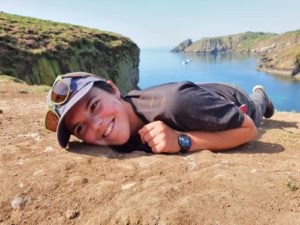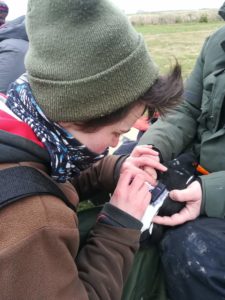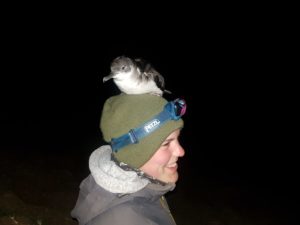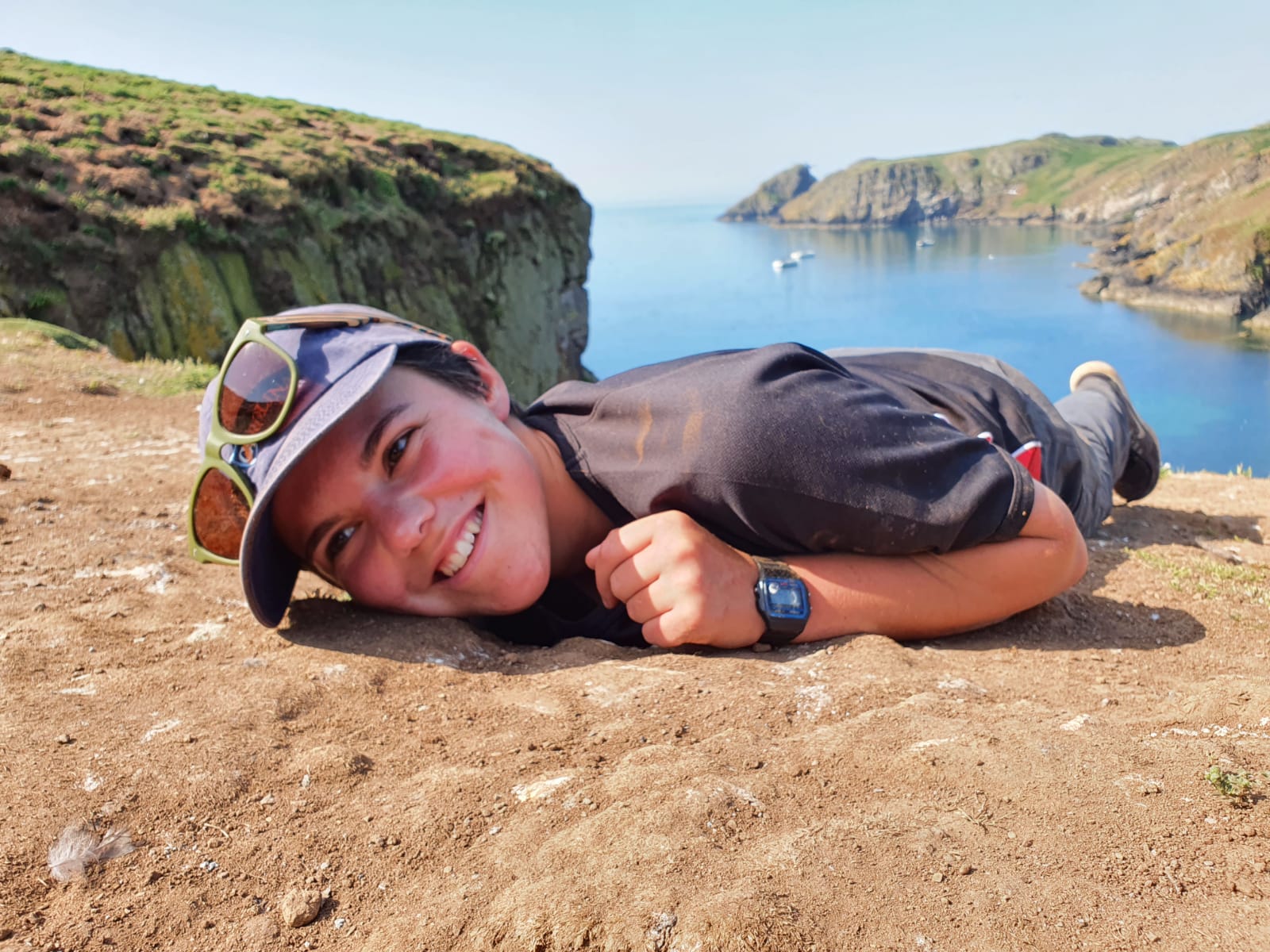We are looking at the achievements of our MSc graduates who have excelled in marine science around the world since studying with us. Today we meet Steph Trapp, MSc Marine Vertebrate Ecology & Conservation graduate (2021) and now undertaking her PhD here at The University of Exeter.
What did you enjoy most about studying at the University of Exeter?
Having the opportunity to learn from such a wide range of researchers and professionals from all over the world. This was definitely one of the biggest advantages of online learning during the pandemic, also living in Cornwall and being 10 minutes from the beach is pretty sweet.
What were the best aspects of studying your course?
I really liked how the course was split between structured, taught modules in the first half of the year and then completely independent project work in the second half. It gave us the chance to learn and develop academic skills like statistical modelling and GIS and then put them into practice for our own projects. The lecturers are all fantastic and super enthusiastic. We were able to explore some of the UK’s marine wildlife, including puffins, basking sharks and Risso’s dolphins. It was the perfect way to round off the taught part of the course.
What skills and experiences did you gain that will/have been useful for job/internship applications?
Learning statistical and spatial analysis techniques, using R and GIS software, whilst developing writing concise and logical scientific material have all proved useful. Additionally, gaining practical experience such as seabird and cetacean identification, alongside boat and land-based survey techniques have better prepared me for the industry. The combination of these have given me a good foundation for both practical fieldwork and more academic careers. 
Why did you choose to study at the University of Exeter?
I did my undergraduate degree here too and loved living in Cornwall. Finishing my degree mid-pandemic, the chances of getting a graduate job seemed pretty slim, but conveniently that was also when the new MVEC masters was being launched. I had been taught and supervised by some of the academics involved so knew it would be brilliant, and it seemed like the logical choice!
Do you think there are any factors that make the University of Exeter a unique place to study?
I think the location of the campus and the whole Biosciences research community make it a very special place. It’s a very welcoming and supportive group to be part of, with so many world-class researchers doing amazing work. Everyone from undergraduate level to professors seems to have a shared love of being outdoors and exploring the Cornish coast.

What skills and experience have been most useful for your career? And how do you think your programme prepared you for your career/current role?
The programme gave me a solid academic grounding, especially in effective scientific communication and statistical analysis, which are vital if you want to do any kind of research job. However, for me the key to being offered my PhD was talking to lecturers and taking opportunities as they came up. Much more so than undergrad, the masters degree gave me the chance to get to know the academics and researchers in the department better and find opportunities to help out with fieldwork etc.
Why did you choose this career?
I still don’t feel as if I have actually “chosen” a career, although I have always wanted to work in conservation. Different opportunities kept popping up throughout my time at university, none of which I could have foreseen, which in turn led to other opportunities. I volunteered on a local wildlife tour boat, helping with dolphin and penguin research during my study abroad year. I also spent a summer on a seabird island as a research assistant. My idea for a career seems to change every few months depending on what I’m doing at that moment in time, which I personally find really exciting as I never know what might come up next!

What advice would you give to a current student who wishes to pursue your career?
Be open to every opportunity, even if it’s not exactly what you thought you would be doing. I think having your career plans really set in stone means you could miss out on a whole load of great experiences. In the same vein, try to make the most of everything you do – I got my first paid research assistant job through working as a cleaner in a hostel. Just being enthusiastic and keen can work wonders!
What are your plans for the future?
I don’t have too many plans for now. I’d like to do some more fieldwork, probably with seabirds, possibly somewhere cool like the Subantarctic, and get my bird ringing license. Other than that, I’ll wait and see what opportunities pop up during the PhD.

What advice would you give to anyone thinking of applying to the University of Exeter?
Do it, there’s nothing to lose! Come and see the campus and explore the area, have a good look at the course descriptions, and don’t be afraid to contact lecturers and staff, or even ex-students on social media, with any questions.

